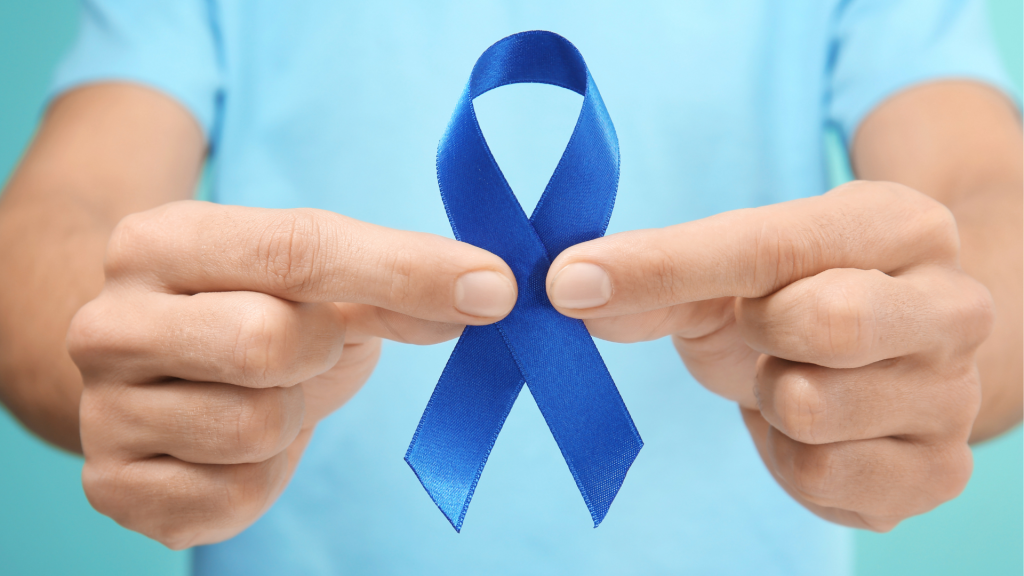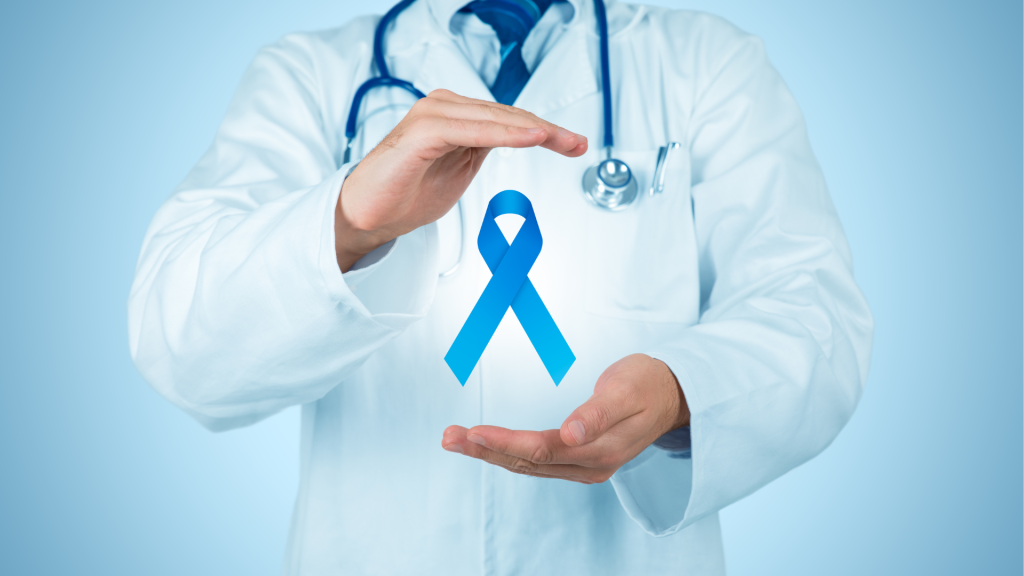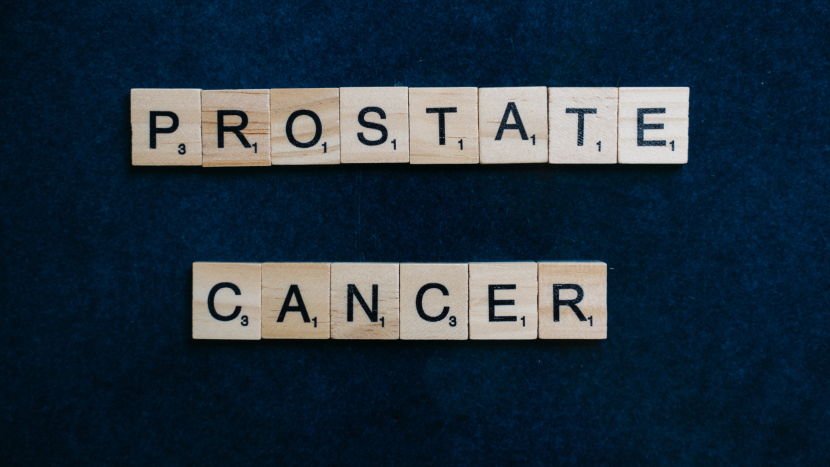Prostate cancer is a type of cancer that begins in the prostate — a small gland in the male reproductive system located just below the bladder. The prostate plays an important role in producing semen, the fluid that nourishes and transports sperm.
Prostate cancer is one of the most common types of cancer among men. In many cases, it is detected early and tends to grow slowly. Because of this, most men diagnosed with prostate cancer are successfully treated and go on to live long, healthy lives.
What Is Prostate Cancer?
Prostate cancer begins in the prostate — a small, walnut-shaped gland located below the bladder and in front of the rectum in males. This gland produces fluid that combines with semen, helping keep sperm healthy for conception and pregnancy.
Prostate cancer is both common and serious. About 13 out of every 100 men will develop it during their lifetime. Fortunately, doctors often detect it before it spreads beyond the prostate. When caught early, treatment usually removes the cancer effectively.
Types of prostate cancer
If doctors diagnose you with prostate cancer, it’s most likely an adenocarcinoma. This type of cancer begins in the glandular cells that produce prostate fluid. In rare cases, prostate cancer can develop from other types of cells.
Less common forms of prostate cancer include:
- Small cell carcinomas
- Transitional cell carcinomas
- Neuroendocrine tumors
- Sarcomas
Symptoms and Causes
Symptoms
Early-stage prostate cancer usually doesn’t cause noticeable symptoms. However, as the disease advances, certain signs may appear. If you experience any of the following symptoms, contact your healthcare provider promptly:
- A frequent or urgent need to urinate, especially at night
- Weak or interrupted urine flow
- Pain or a burning sensation while urinating (dysuria)
- Difficulty controlling your bladder (urinary incontinence)
- Trouble controlling your bowels (fecal incontinence)
- Painful ejaculation or erectile dysfunction (ED)
- Blood in your semen or urine
- Persistent pain in your lower back, hips, or chest
Causes
Early-stage prostate cancer usually doesn’t cause noticeable symptoms. However, as the disease advances, certain signs may appear. If you experience any of the following symptoms, contact your healthcare provider promptly:
- A frequent or urgent need to urinate, especially at night
- Weak or interrupted urine flow
- Pain or a burning sensation while urinating (dysuria)
- Difficulty controlling your bladder (urinary incontinence)
- Trouble controlling your bowels (fecal incontinence)
- Painful ejaculation or erectile dysfunction (ED)
- Blood in your semen or urine
- Persistent pain in your lower back, hips, or chest
Common Risk Factors
Several factors can increase your chances of developing prostate cancer:
- Age: Risk rises with age, especially after 50. Around 60% of prostate cancer cases occur in men over 65.
- Race and Ethnicity: Black men and those of African ancestry face a higher risk, particularly for aggressive forms diagnosed before age 50.
- Family History: Having a close relative (father, brother, or son) with prostate cancer makes you two to three times more likely to develop the disease.
- Genetics: Inherited conditions like Lynch syndrome and mutations in BRCA1 or BRCA2 genes (also linked to breast cancer) significantly raise your risk.

Other Potential Risk Factors
While research continues, some studies suggest other factors that may increase risk, though evidence remains inconclusive:
- Smoking
- Prostatitis (inflammation of the prostate)
- Obesity (BMI over 30)
- Sexually transmitted infections (STIs)
- Exposure to Agent Orange (a defoliant used during the Vietnam War)
Diagnosis and Tests
How Doctors Diagnose Prostate Cancer
Doctors rely on a combination of screening tests, physical exams, imaging, and biopsies to diagnose prostate cancer. Most men begin routine screening around age 55, though those at higher risk may start earlier. Typically, screening ends after age 70. If early test results show abnormalities, doctors may recommend additional testing.
If the tumor appears slow-growing and unlikely to cause harm, your doctor might delay further testing. However, if the cancer is aggressive or has spread beyond the prostate, a biopsy is usually necessary to confirm the diagnosis.
Common Tests Used in Diagnosis
Here are the main tests doctors use to detect prostate cancer:
- Digital Rectal Exam (DRE):
The doctor inserts a gloved, lubricated finger into the rectum to feel the prostate. Bumps or firm areas may suggest cancer. - Prostate-Specific Antigen (PSA) Blood Test:
The prostate produces PSA, a protein that circulates in the blood. Elevated PSA levels may indicate cancer, but they can also result from benign prostate enlargement or inflammation (prostatitis). - Imaging Tests:
MRI or transrectal ultrasound helps visualize the prostate and detect any suspicious areas. These scans help determine whether a biopsy is necessary. - Biopsy:
A needle biopsy involves removing a small tissue sample from the prostate for lab analysis. This is the only way to confirm the presence of cancer and assess its aggressiveness. In some cases, doctors also perform genetic testing on the biopsy sample to guide treatment decisions.
How Is Prostate Cancer Treated?
Treatment depends on your health, how far the cancer has spread, and how fast it’s growing. Early-stage prostate cancer is often curable. You may work with urologists, radiation oncologists, and medical oncologists.

Treatment Options
1. Surveillance (for slow-growing cancer)
- Active Surveillance: Regular tests (every 1–3 years) to monitor early, low-risk cancer.
- Watchful Waiting: Less testing, focusing on symptom relief (often for older patients).
2. Surgery
- Radical Prostatectomy: Removes the prostate.
- Open Surgery: Traditional method with one large incision.
- Robotic Surgery: Uses small cuts and robotic tools.
3. Radiation Therapy
- Brachytherapy: Places radioactive seeds inside the prostate.
- External Beam Radiation (EBRT): Targets cancer with high-energy rays.
4. Systemic Therapies (for advanced cancer)
- Hormone Therapy: Lowers or blocks testosterone.
- Chemotherapy: Uses drugs to kill cancer cells.
- Immunotherapy: Boosts your immune system to fight cancer.
- Targeted Therapy: Attacks specific genetic changes in cancer cells (like BRCA mutations).
5. Focal Therapy (for localized, low-risk cancer)
- HIFU: Uses sound waves to heat and kill cancer cells.
- Cryotherapy: Freezes cancer cells.
- Laser Ablation: Destroys tumors with heat.
- Photodynamic Therapy: Light-sensitive drugs and light kill cancer cells.
Possible Side Effects
- Incontinence: Urine leakage or urgency, usually improves in 6–12 months.
- Erectile Dysfunction: May affect erections; medications can help.
- Infertility: Treatment may reduce sperm production—consider sperm banking beforehand.
Always tell your care team about side effects—they can offer support and solutions.
Final Thoughts
Prostate cancer is one of the most common cancers in men, but early detection makes a big difference. When diagnosed early, it’s highly treatable and often curable. Regular screenings, especially if you’re over 50 or at higher risk, can help catch the disease before it spreads.
Not all prostate cancers grow fast or require immediate treatment—some may only need careful monitoring. If treatment is needed, there are several effective options, from surgery and radiation to newer targeted therapies.
Staying informed, maintaining regular check-ups, and talking openly with your healthcare provider are key to managing your risk and ensuring timely care. With the right approach, many men live long, healthy lives after a prostate cancer diagnosis.
FAQs
Q. 1 What are the early signs of prostate cancer?
Ans: In early stages, there may be no symptoms. In later stages, you might experience difficulty urinating, frequent urination (especially at night), blood in urine or semen, or pelvic discomfort.
Q. 2 How is prostate cancer detected?
Ans: Doctors use a PSA blood test, digital rectal exam (DRE), and sometimes imaging or a biopsy to detect and confirm prostate cancer.
Q. 3 How is prostate cancer detected?
Ans: Doctors use a PSA blood test, digital rectal exam (DRE), and sometimes imaging or a biopsy to detect and confirm prostate cancer.




